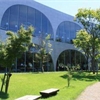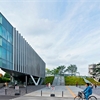What do you need to prepare before studying abroad in Singapore 4255
 Rieter University,The first batch of overseas study institutions certified by the Ministry of Education,Accredited by the world's top ICEF Education Exhibiting Organization (Screened Agency),Member of the National Overseas Study Agency Service Alliance (COSSA),Member of Beijing Overseas Study Service Industry Association (BOSSA),China Education Association for International Exchange self-funded study abroad intermediary service branch director unit,More than 10 years of experience in overseas study and immigration services,We have helped thousands of students achieve their dreams of studying abroad and finding jobs。
Rieter University,The first batch of overseas study institutions certified by the Ministry of Education,Accredited by the world's top ICEF Education Exhibiting Organization (Screened Agency),Member of the National Overseas Study Agency Service Alliance (COSSA),Member of Beijing Overseas Study Service Industry Association (BOSSA),China Education Association for International Exchange self-funded study abroad intermediary service branch director unit,More than 10 years of experience in overseas study and immigration services,We have helped thousands of students achieve their dreams of studying abroad and finding jobs。
If you have any questions about studying abroad and working abroad, please call us 022-2328-9071/9075
After arriving at a Singapore school, applicants are required to undergo a series of medical examinations。These medical examinations are designed to ensure that applicants are in good health and comply with Singapore Government regulations。The following is a detailed interpretation and precautions about the medical examination program for studying abroad in Singapore。

1. Basic physical examination
The basic physical examination is the most basic and the most important part of the physical examination。It includes measuring height, weight, blood pressure and other indicators to assess whether the applicant has normal physiological development and physical and mental health。
- Note:
- Schedule your time in advance:A basic medical examination usually requires an appointment in advance and is done on an empty stomach, so it is recommended that applicants schedule their time in advance and comply with the relevant requirements given by the hospital or institution。
- Clothing selection:Wearing lightweight, comfortable clothing will make the process smoother and more comfortable。
- Answer the question truthfully:The doctor may ask some questions about personal health, and the applicant needs to answer truthfully to ensure that the results of the medical examination are accurate。
2. Blood test
Blood test is one of the common items in the physical examination of overseas students。It takes blood samples from applicants to assess various physical indicators, including hemoglobin levels, white blood cell counts, and liver function。
- Note:
- Fasting sampling:A blood sample is usually required in the morning and a fasting state is required。Therefore, don't eat too much or greasy food the night before。
- Follow your doctor's advice:Prepare accordingly as directed by your doctor, such as stopping certain medications or adjusting your diet。
- Relax:Some people may be nervous or fearful about having their blood drawn, but staying relaxed and calm can help the process go smoothly。
3. X-ray examination
X-ray examination is a common method used to assess the health of the applicant's chest and lungs。It can help detect potential problems such as tuberculosis and pneumonia。
- Note:
- Dress appropriately:During the X-ray examination, the upper body clothing should be removed and the protective clothing or apron provided by the hospital should be worn。
- Special cases for women:If the applicant is pregnant or may become pregnant, the doctor should be informed in advance so that appropriate protective measures can be taken。
- Follow the instructions:X-rays usually require specific body positions and breathing patterns, so follow the instructions of your doctor or technician。
4. Urine test
Urine test is an important means to assess the kidney function and urinary system health of the applicant。By analyzing the urine for the presence of abnormal components to determine whether there is a potential problem in the body。
- Note:
- Sample collection method:Urine samples are usually collected in a clean container and delivered to the hospital or laboratory within a specified time。
- Follow your doctor's advice:Depending on the doctor's instructions, it may be necessary to discontinue the use of certain medications so as not to affect the test results。
- To maintain normal urine:Before conducting a urine test, attention should be paid to the regulation of diet and water intake to ensure that the urine sample can reflect the true situation。
5. Electrocardiogram examination
An electrocardiogram is one way to assess the applicant's heart health。The electrical activity of the heart is recorded to determine whether there are abnormal conditions, such as arrhythmia and myocardial ischemia。
- Note:
- Relax your body:During the ECG examination, the applicant is asked to relax and remain quiet。
- Follow the technician's instructions:Follow the operation steps and breathing methods given by the technician, and cooperate to complete the whole process。
- Avoid distractions:Before performing an ECG test, avoid drinking caffeinated beverages or consuming substances such as chocolate that may interfere with the results。
In short, the medical examination program in Singapore covers many aspects such as basic physical examination, blood examination, X-ray examination, urine examination and electrocardiogram examination。The applicant should arrange the time in advance before the medical examination and comply with the relevant requirements given by the hospital or institution。In addition, it is very important to remain relaxed and cooperate with the doctor's or technician's instructions throughout the medical examination。Through reasonable preparation and cooperation to complete the medical examination program, you can ensure that the applicant successfully passes the entry criteria and is fully prepared for studying in Singapore。














